Unschooling Preschool

Recently, a mama with littles shared that she had a hard time coming up with a daily routine for her 2- and 4.5-year old kiddos, and asked for a suggestion of how to time block her days without it feeling too scheduled (she has a heart to cultivate a natural learning environment for her kids).
It’s easy – once you get past the super itty-bitty stage … as infants morph into miniature-sized human beings who are no longer simply eating and napping all day long … to want to start creating structure to your days.
And while it’s important to have a predictable rhythm in these pre-school years, my biggest advice is not to structure your days too rigidly!
First Things First
First off, at this stage of motherhood, when kids are still very young (between the ages of 3-6), “school” shouldn’t be the objective … and, therefore, “unschooling” shouldn’t be looked at simply as a different way of schooling.
Unschooling, fundamentally, is embodying the reality that ALL of life is learning; that our everyday experiences (whether organic or more structured) are part of our overall education as whole beings.
I get it. I was one of those moms who were so eager to start teaching all the things when my oldest was about pre-school age. I even re-arranged a whole section of our house to accommodate for homeschooling him at nearly 3-years old! You can read about our homeschool beginnings here.
You know the result? BURNOUT.
So, for this stage of motherhood/lifeschooling, my biggest suggestion is to focus more on play and cultivating wonder, getting out and exploring, being present with your child, studying them, building the foundation of your future relationship with each other, and beginning to teach them about Jesus.
All the other stuff like numbers and letters and reading? Sure, you can sprinkle them throughout your days (young kids actually do love that stuff since all of it is new and exciting!), but try to avoid making them the main focal point (like I did when my oldest was 3-4 years old!). Don’t start falling into the trap of creating a “school” environment in your home!
Time Blocking as a Mom of Littles
I’ve always time blocked. Maybe it’s my personality. But even if you aren’t a super organized, planner-type person, I can’t suggest strongly enough the importance of this for success … not just as a mom or homeschooler, but for all of life!
The benefits of time blocking have given me sanity in all my years of motherhood, especially those littles years when everyday can look like utter chaos! Time blocking your days not only helps with your mama sanity, but will also give your children a stable rhythm they can count on (and need in order to grow into secure human beings). You can read more about why I am so passionate about time blocking here.
For those of you who still have squishy, adorable babes underfoot, this is what I suggest for time blocking your days without them feeling too scheduled.
The BIGGEST thing to remember is to structure your time, not content! Basically, aside from very specific things like meal times and nap times, dedicate blocks of time in your day where your children can expect some sort of activity, but without actually, rigidly penciling in exactly what you are going to do. That way you still have flexibility!
Here’s an idea of what time blocking can look like with littles (what it looked like for us, anyway):
Breakfast and Bible Block:
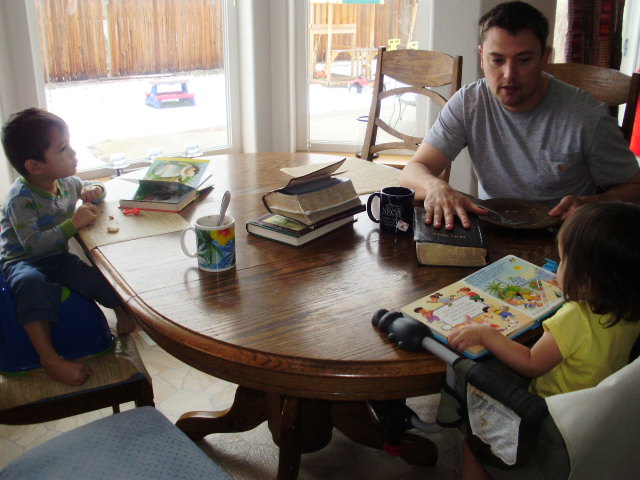
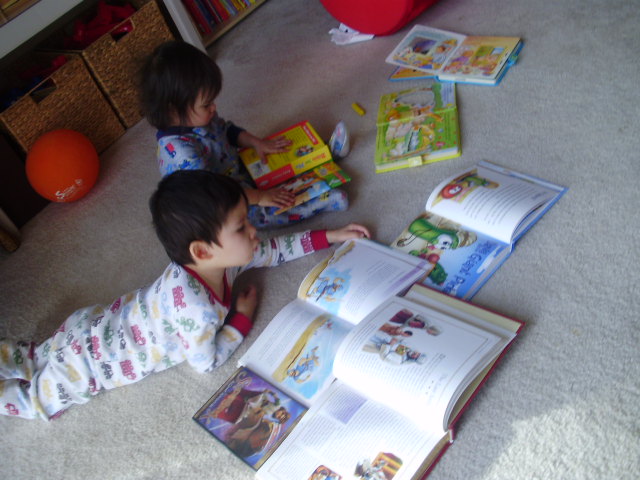
Start your day off right with Jesus! There are sooo many options these days for picture books or storybook bibles. When my kids were that age, I often simply talked to them about Jesus like He was one of their favorite superheroes. “You know how you love (insert their favorite superhero)? Jesus is even better than him/her!” And then I’d proceed to share with excitement all the amazing things He did. This laid the foundation for them having a connection with Jesus, so that when they were older, reading the bible was more meaningful to them and not a chore or drudgery.
Morning Activity Block:
1) Household Chores
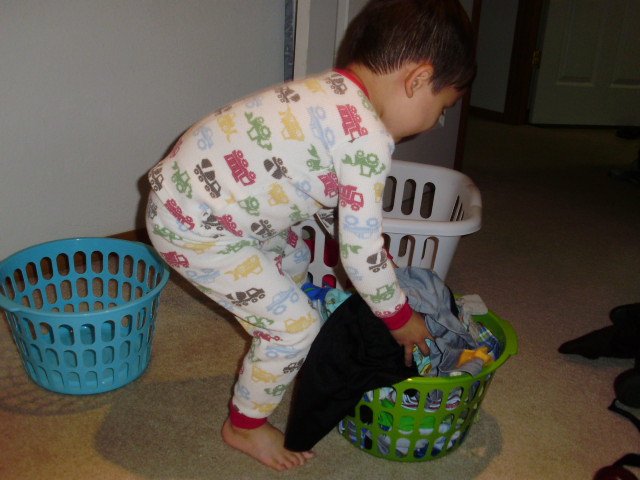
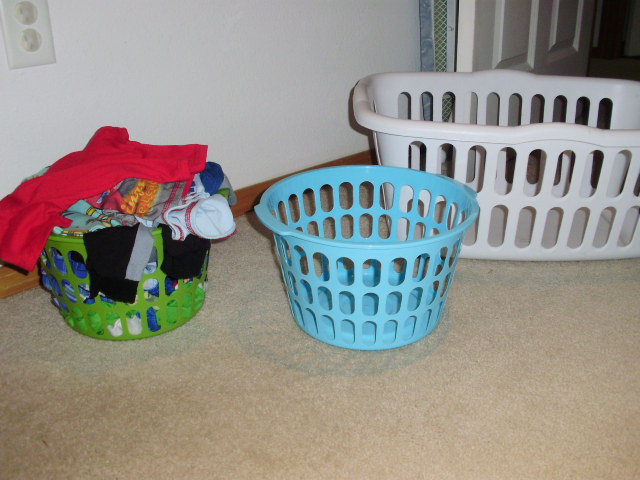
This comprised of getting dressed (since we always ate breakfast in our jammies, LOL) and doing some morning chores, which set the example for how to work and established the habit of home maintenance/cleaning.
For example, I would have them help me start a load of laundry. Back then, there were these small laundry baskets at The Dollar Store that were just their size (or you can use any other basket/bin they can carry). I’d throw a few pieces of clothing each in their baskets (not too heavy) and we all carried our baskets/bins to the washing machine and learned how to start it. Later in the day, they’d learn how to transfer the clothes to the dryer and how to start that! This actually served us really well, because by the time they were each around 7-8 years old, they knew how to do their own laundry!
Tools we had on-hand to make it exciting for them were their own small laundry baskets, a small hand broom/dustpan, small rags, LOL. Mini versions of what I used (all from The Dollar Store). My kids actually loved it; they were like “WHOA! That’s for me?!” So that helped a lot with ownership + stewardship of our home!
2) Out-of-the-House Activities
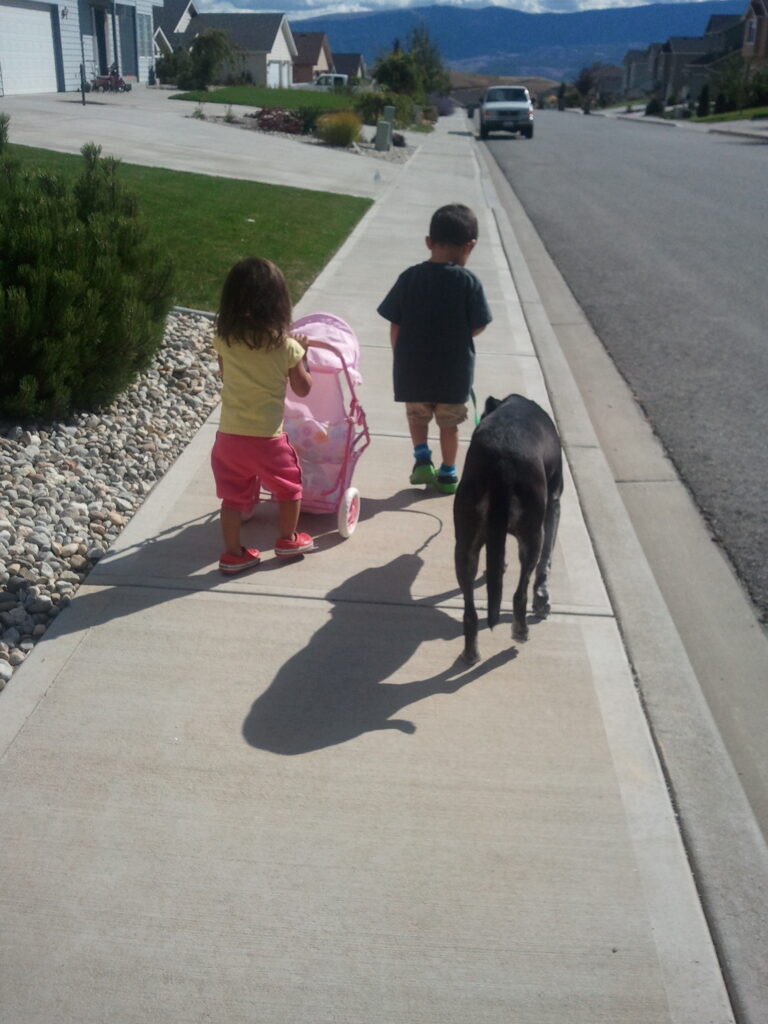
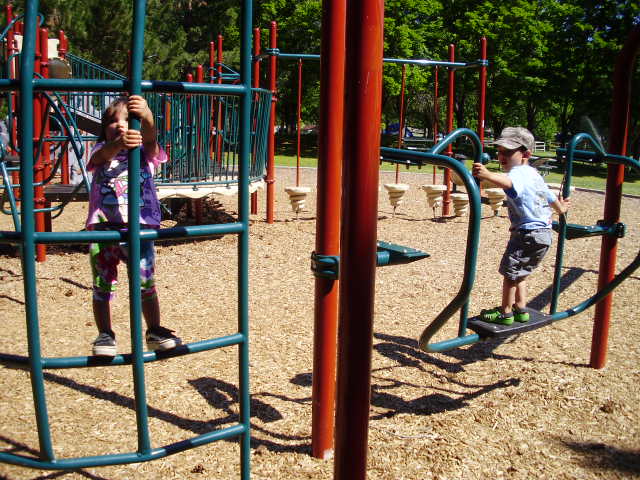
The rest of every morning looked different, depending on the day. But the common denominator was that we tried to get out of the house. Honestly, at this stage, lots of play and interacting with others is HUGE! This begins to build real life skills of communication and manners!
Here are some ideas for morning activities:
- Going on a neighborhood walk (an idea for this is to do a “listening walk”; we loved doing this often and was inspired by the book with the same title, The Listening Walk)
- Going on a nature walk at a local park or littles-friendly trail (an idea for this is to take pocket naturalist guide … they come in so many options like pond life, local birds, animal tracks, local flowers, trees, and so much more; my youngest especially loved this and still uses ours today!)
- Going to the library for a story time and/or to pick out new books to read in the afternoon
- Going to a friend’s house for a playdate
- Going to medical/dental appointments (whenever possible, I scheduled our appointments in the morning) … talk to your kids about the roles of doctors and dentists and the importance of taking care of your body and teeth!
- Going to the grocery store (a fun idea is to print off photos of grocery items on a sheet of paper and have them identify and cross of things as we grab them; kind of like a scavenger hunt!)
- A special, once-in-a-while morning activity would be going to a fun store (for us it was Target) and giving them some cash in different denominations to pick out an activity or toy, more as a lesson on money, the value of it, and cash-handling. They could pick out whatever they wanted, as long as it was within their budget (including the tax)! They also learned how to pay the cashier (they learned early on the value of each bill and coin!)), as well as practice saying, “Please and thank you” while doing the transaction. It took longer at the checkout stand but again so much fruit later when they were older (and usually at that time of day, most other shoppers were other stay-at-home moms in the same boat or sweet grandmas who were very patient and encouraging!).
- Or, we’d invite other moms and their kids to come over to our place!
All to say, we spent most of our mornings cultivating social and real-life skills by being with community, in our community!
Of course, we didn’t leave home every single morning, but did try to shoot for heading out most mornings just to get wiggles out, especially in that season of stay-home-mom life. 🙂
Lunch Block:
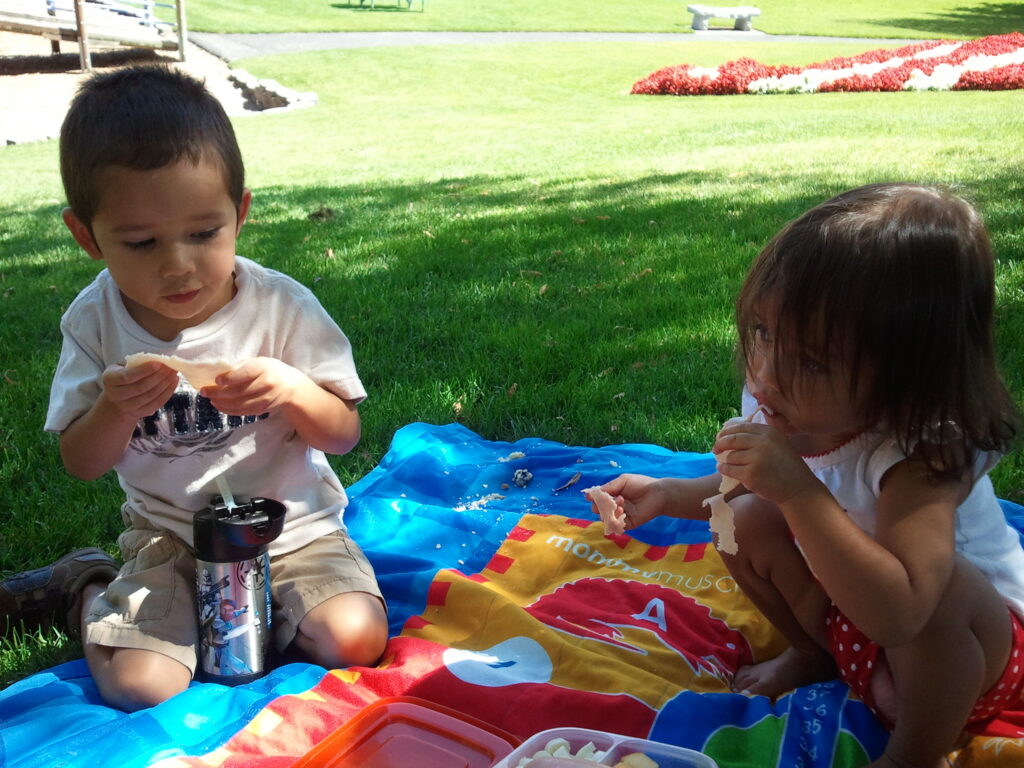
We’d head home for lunch (unless we were lunching with friends at a park or at their house for a playdate).
Afternoon Block:
1) Rest Time
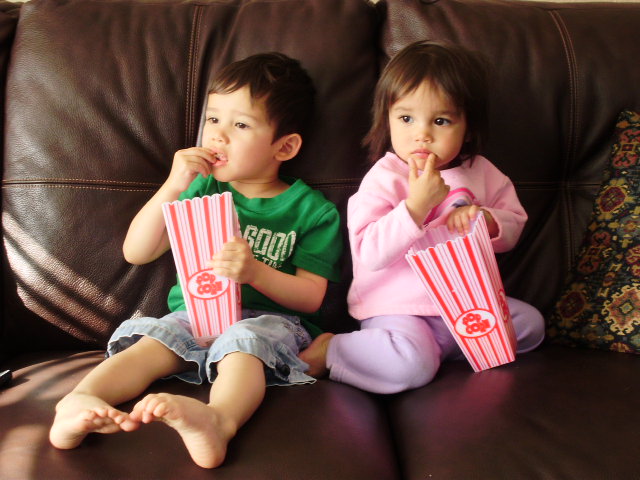
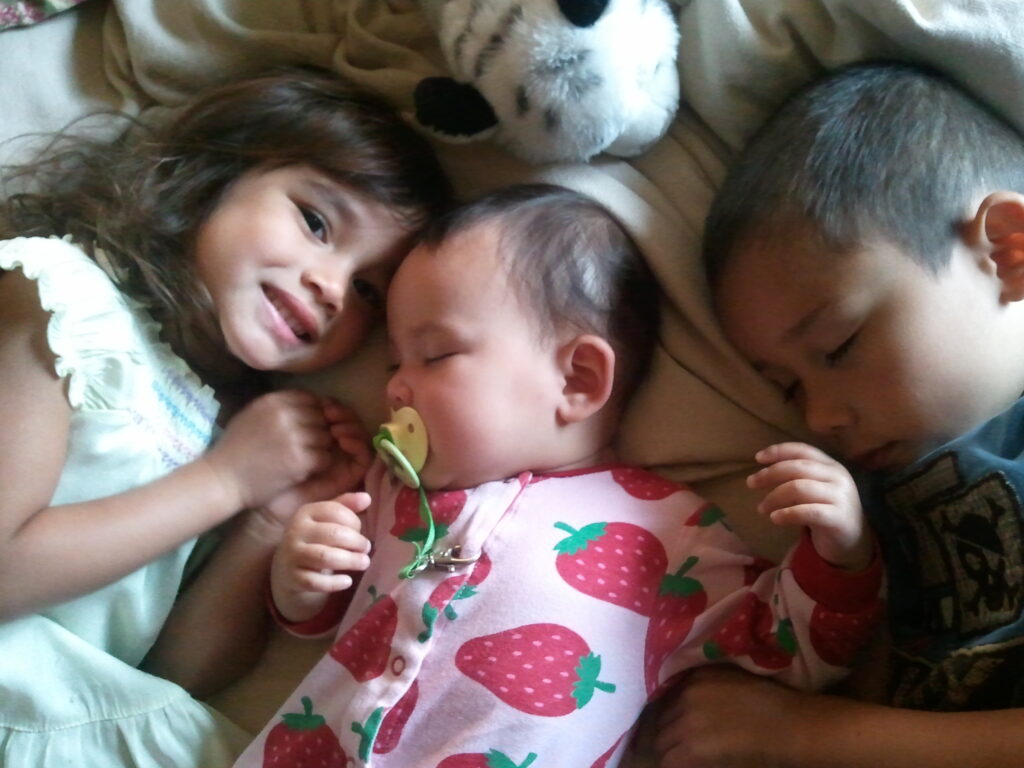
Usually, by this time, my kids were pretty tired (LOL, me too). This usually called for naps or show time (if they didn’t nap). Not gonna lie, shows were my sanity at that stage! Back then my kids loved Wild Kratts, Little Einsteins, Daniel Tiger, etc. Not sure what is out there now! But something educational and fun for them. I could then have my own brain space while they watched a show or two (or three!).
After we napped or at least rested a little, we’d move on to some afternoon activities.
2) At-Home Activities
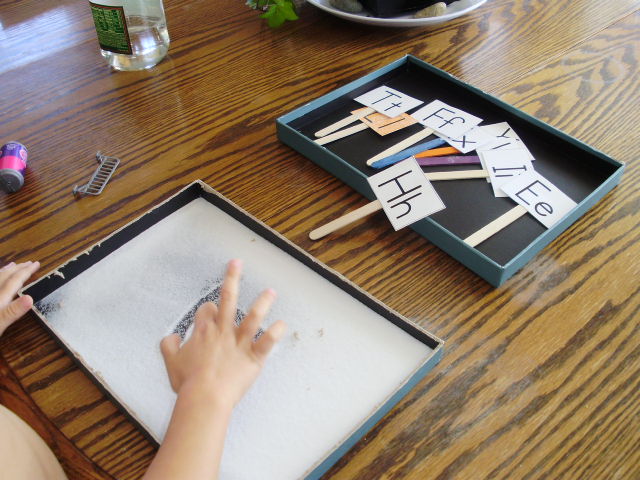
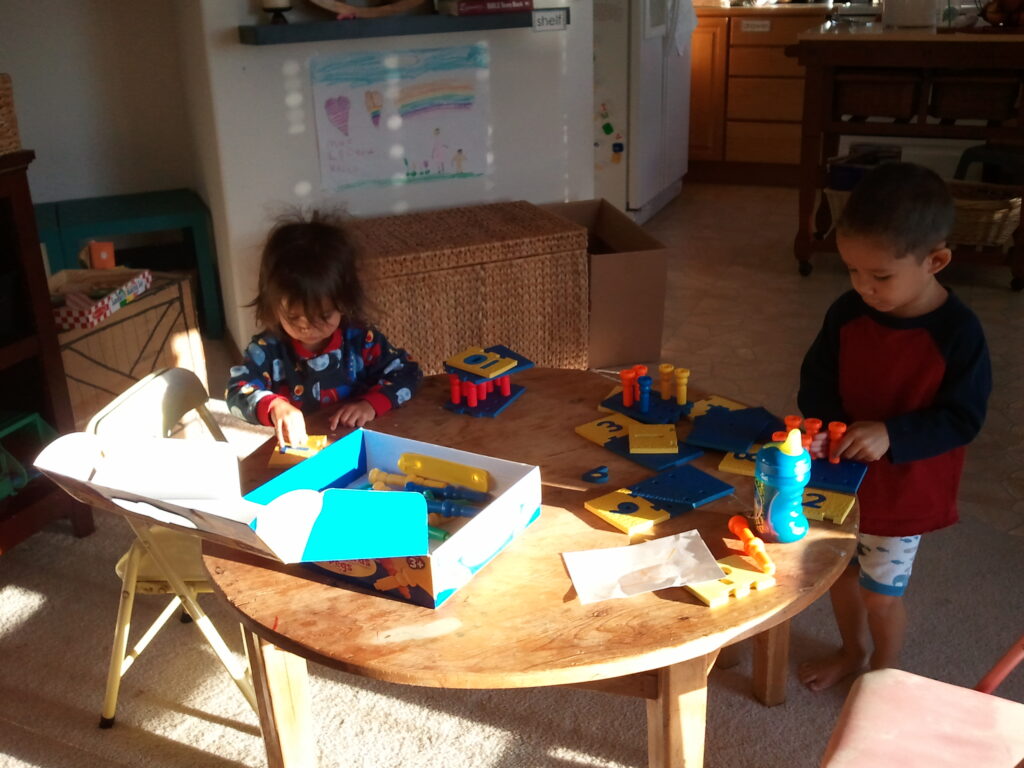
Here are some ideas for afternoon activities:
- Inviting your kids (not forcing them!) to learn letters and numbers (we especially loved to use salt trays for letter tracing, Trader Joe’s alphabet cookies for sounding out sounds and creating consonant-vowel-consonant (CVC) words before they’d gobble them up, using letter cookie cutters and playdough, hands-on activities from printables I’d download off the internet, games, interactive books, activity/sticker books, etc.)
- Intentional learning toys
- Crafting or coloring books
- Sensory bin play (fill up medium/large plastic storage bins that have lids with things like rice, aquarium rocks, beans, kinetic sand, etc. plus toys)
- Playing in/exploring our own backyard (I sometimes made obstacle courses, they loved to play with bubbles, they pretended they were scientists or archeologists and dig in the dirt pile and garden bed we had, etc.)
- Having tea parties or picnics
- Playing restaurant or store (we had a play kitchen and play food)
- Build with chunky Legos or building blocks or magnetic shapes
- Constructing a fort (we had something like this)
- Pretending like we were going to the zoo (we’d set up “exhibits” with all the kids’ stuffed animals throughout our living room, LOL)
- Baking a fun treat together that we could enjoy while I did our read-alouds
- LOTS of picture book reading
LOTS of learning play, wonder-filled activities, and stoking imagination! Our house was often a disaster, LOL, but we were definitely creating memories and gaining so much education from those activities.
A Note on Time Blocking: I want to re-iterate that we were not rigid with this rhythm. Having a rhythm in place was primarily so I wasn’t flying by the seat of my pants and so that my own kids could have stability and security knowing what to expect overall. However, life happens! And we often flip-flopped our morning activities with afternoon activities … or scrapped them altogether depending on external circumstances (needing to help another mama out, blowouts, not feeling well, temper tantrums, just me wanting to vegge and not adult for a day, LOL). If you haven’t read already, this is the post where I share more thoughts on time blocking and how it’s helped me be an intentional stay-at-home/homeschool mama all these years.
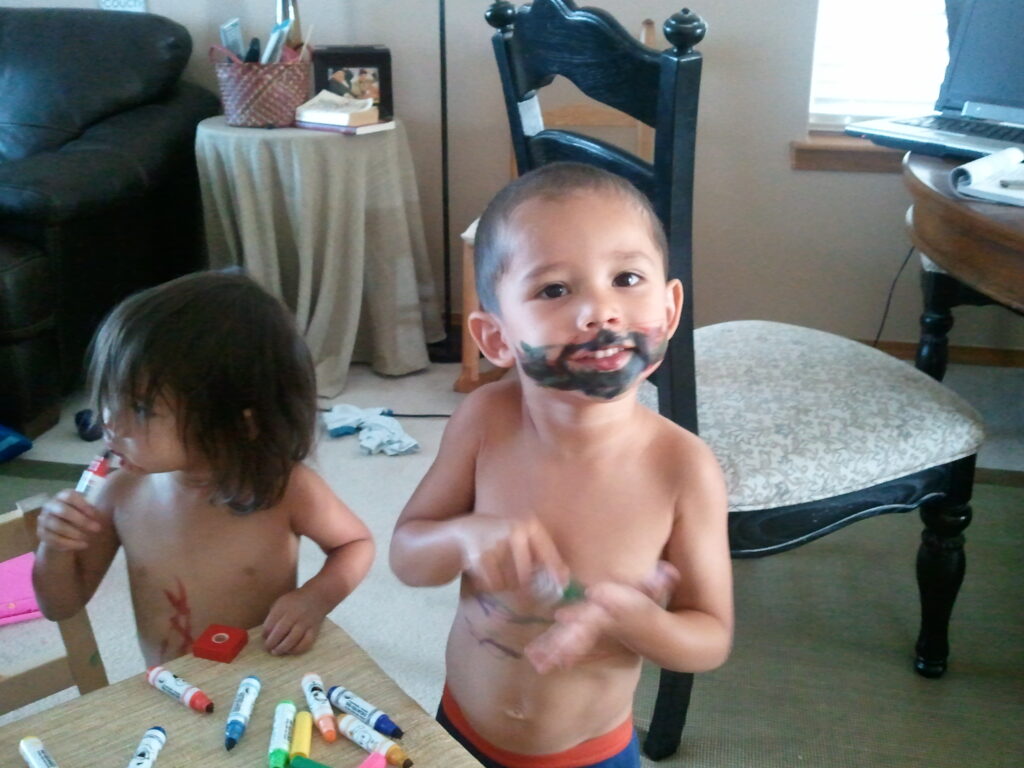
As I share this, I’m taken back to how tired I was at that stage, LOL! I literally played with them most of the day (and struggled with, “Is this my life now?!”). BUTTT, now, looking back … for one, it actually goes fast (I know, I know, everyone says that, but it really does!), and secondly, it was sooo worth just being present for them. We all now have such a tight relationship, which is HUUUGGGE for these teen years that I am currently in with them.
2) Afternoon Pickup
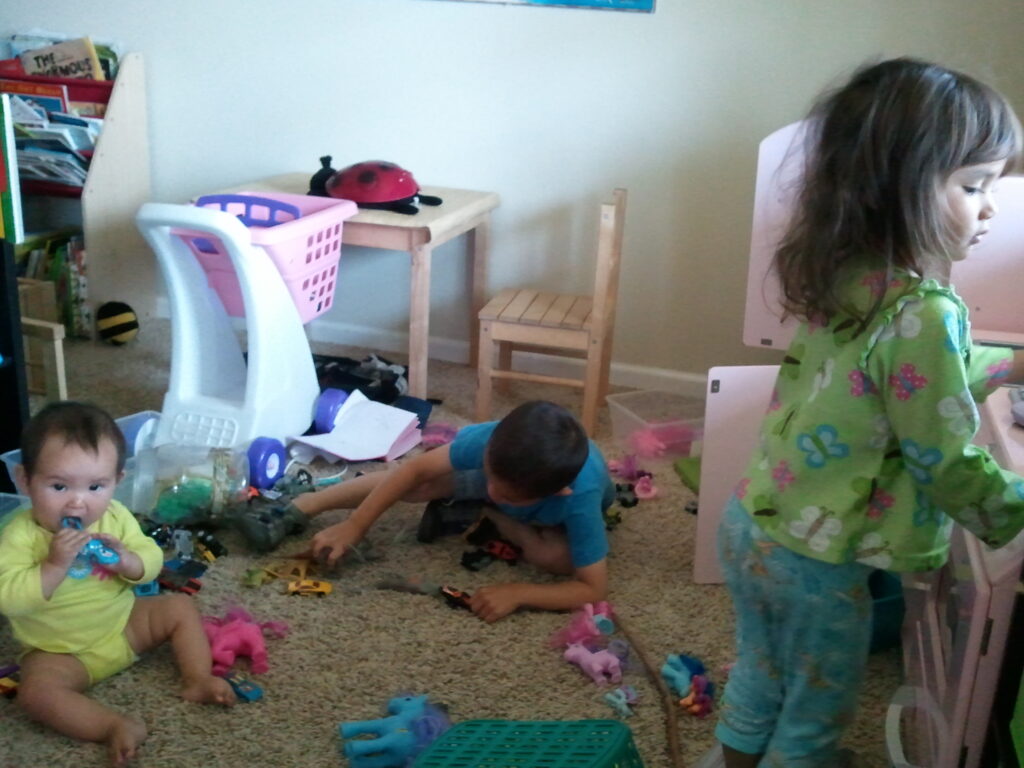

Before dinner (and before my hubs would get home), we’d do an afternoon pick up. That way the house was in some sort of (imperfect) order before dinner (so at least there was a walkway through the chaos, LOL). I’d sing that cheesy, “Clean up, clean up, everybody clean up” song, LOL. Actually, life at that stage included lots of songs!
I printed out chore sheets that had photos (my kids are very visual) of both the AM and PM chores so they could see (then cross off) our activities. I didn’t really do rewards (but for some families, that may be want you need!). I just used the printable as visual cues. For instance, I would ask, “Okay, what else do we have to do?!” And they’d look at the sheet (i.e. a picture of a shoe and a sock) and reply, “Put away our shoes and socks!”
Then dinner!
Foundation for Real Life Skills
As you can see, at this stage of raising kids, at least for our family, there was lots of training for life skills … learning how to interact with people, learning how to take care of our possessions and be responsible, lots of playing and exploring.
Laying the Foundation for Gospel-Powered Living
You want to have an idea of what to do for each day, but be open-handed and ready to pivot. Especially since there will be a A LOT of organic discipleship opportunities that prop up, like fits/tantrums being thrown at the store or a child grabbing a sibling’s toy or book.
In those moments, I often stopped what we were doing (yes, even in the grocery store or Target; we’d push our cart to a quiet area/corner), and I would address the issue. I’d attempt to calm them down, ask them what’s going on in their heart, and speak gospel truths (in a way they could understand). Sometimes we were in those corners for like a half hour, LOL!
But here’s an encouraging thing, in those early years, older grandma-aged ladies who witnessed what I did would comment and encourage me that what I was doing was good and right. So, my challenge for you younger mamas is to not fear man and be intentional about zoning in and focusing on your kiddos in those moments (I’ve seen lots of young mamas lost their stuff and yell because they were so frustrated & embarrassed at their child’s behavior). Because, really, behavior is a reflection of deeper things. And instead of pushing it off, tackling them in the moment is even more important than sitting them down to do their letters and numbers! In fact, these opportunities were the beginning of gospel training in my kids … and, frankly, the bulk of our “schooling”!
Cultivate Community
This is sooo important. Find like-minded mamas in your area to do things together with so you aren’t alone in your efforts. A great place to start is with moms in your church who have the same age kids. When my kids were preschoolers, I was part of my local Mothers of Preschoolers (MOPS), which is now called MomCo. Be intentional about inviting them over or for a walk. You need community just as much as your children need to learn how to be in one!
Final Thoughts
Again, don’t make your days too rigid at this stage! Yes, have a general rhythm (time-blocking helped me but that may not work for you!) so you can start each day with a plan. But you also want to be flexible.
Raising preschoolers is a lot of hard work! But thankfully, you don’t go at it alone. The Greater Parent is always there to lead you and carry you as you live your messy, beautiful days with your children.
Check out this post for a list of fun resources for the preschool stage of raising kids!
Curious about getting started as Christian unschoolers/lifeschoolers? Check out my e-book!

Here are some easy and enjoyable preschool learning activities you can try at home.